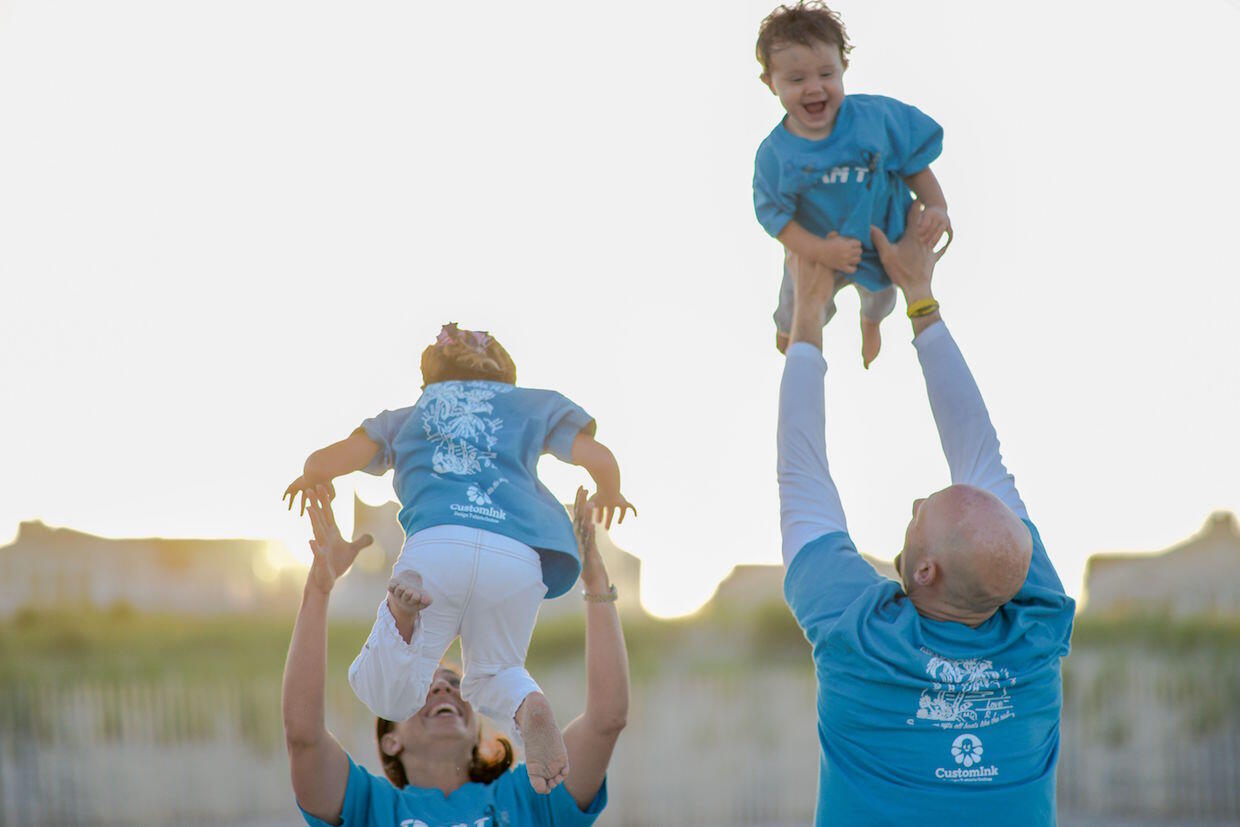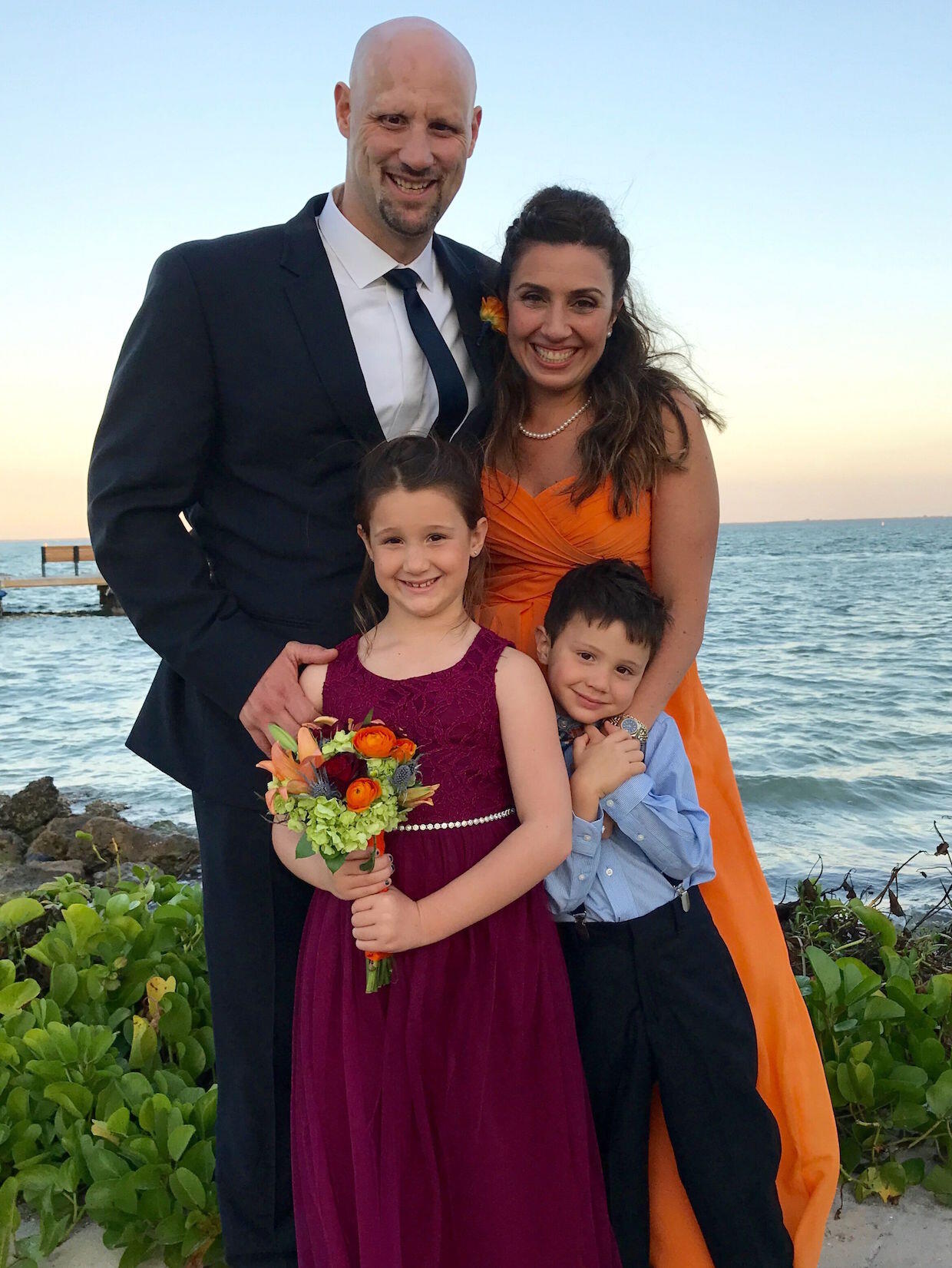
March 29, 2019
Cancer survivor advocates for clinical trial participation
Share this story
T.J. Sharpe was diagnosed with metastatic melanoma just weeks after the birth of his second child in August 2012. Sharpe had overcome the most dangerous form of skin cancer 12 years prior, so news of the recurrence came as a shock. What followed was even more shocking, when doctors told him he had less than two years to live. Not willing to let his life be defined by a diagnosis, Sharpe enrolled in two clinical trials to try to beat his long odds of survival.
Now nearly seven years after that second diagnosis and living cancer free, the Fort Lauderdale, Florida-resident has forged a career as a patient advocate and clinical trial experience expert, making it his life’s mission to share the value of clinical research with audiences around the country. In his presentations, Sharpe speaks about the patient experience for late-stage cancer treatments, immunotherapies and clinical trials. Along the way, he brings a message of hope from the perspective of a patient who is on the road to recovery.
On April 12, Sharpe will visit Richmond to speak about his experience with clinical trials at the Virginia Clinical Research Conference. The inaugural, statewide conference will be held at the Hilton Richmond Downtown Hotel from 7:30 a.m. to 5 p.m. It brings together clinical research professionals from across Virginia to share perspectives, discuss best practices, and collaborate on new opportunities in clinical research, all with the shared goal of strengthening the clinical research enterprise in the state.

Ahead of his talk, VCU News spoke with Sharpe about the value of clinical trial research and what he hopes to share with conference attendees.
When you found out the melanoma had returned, what was your initial reaction?
I was in disbelief initially, but as the week in the hospital went along I learned more about how difficult it can be to keep melanoma from recurring. I was lucky it had stayed dormant so long, as it was the same melanoma from 12 years prior. So my initial disbelief turned into resolve, knowing the difficult journey I was undertaking.
When was the opportunity to participate in a clinical trial presented to you, and why did you decide to enroll?
It was only presented to me after three oncologists offered varying treatment options. One offered chemotherapy, while two others offered a newly approved immunotherapy. Luckily I had done my research and pushed for the best possible treatment available. I finally found something from the fourth oncologist that we believed was the best chance at giving me a durable response. I picked that clinical trial because it incorporated everything I had learned about the growing field of immunotherapy — it was a combination therapy that included personalized medicine and immunotherapy rather than chemotherapy. Additionally, it had shown significant promise in similar trials to have a continued response years after the treatment.
When that trial failed, why did you decide to try another?
At that point, we were open to pretty much anything. But in the six months between diagnosis and the first trial’s failure, the success of the anti-PD-1 drugs surged. We were sure the best possible option for me at that point was one of those checkpoint inhibitors, and that particular one was the furthest along in development. [Anti-PD-1 immunotherapies aim to block a pathway that shields tumor cells from cancer fighting immune system components, thus enabling the body’s immune response to better attack cancer.]
How have you benefited from participating in clinical trials?
Not only have I become completely clear of cancer, this experience has given me insights into the clinical trial advocacy world. My career is now centered on representing the patient voice in drug development and clinical trial research. I get a chance to help others find the right treatment at the right time for them.
What will be your message to people who attend the Virginia Clinical Research Conference?
Clinical research saves lives. It takes a lot to bring treatments to patients, and every day and delay affects real people with real families who want to live a longer, better and healthier lives. Every person in the clinical research world plays a critical role in bringing lifesaving medicines to patients who need them.
Subscribe to VCU News
Subscribe to VCU News at newsletter.vcu.edu and receive a selection of stories, videos, photos, news clips and event listings in your inbox.







